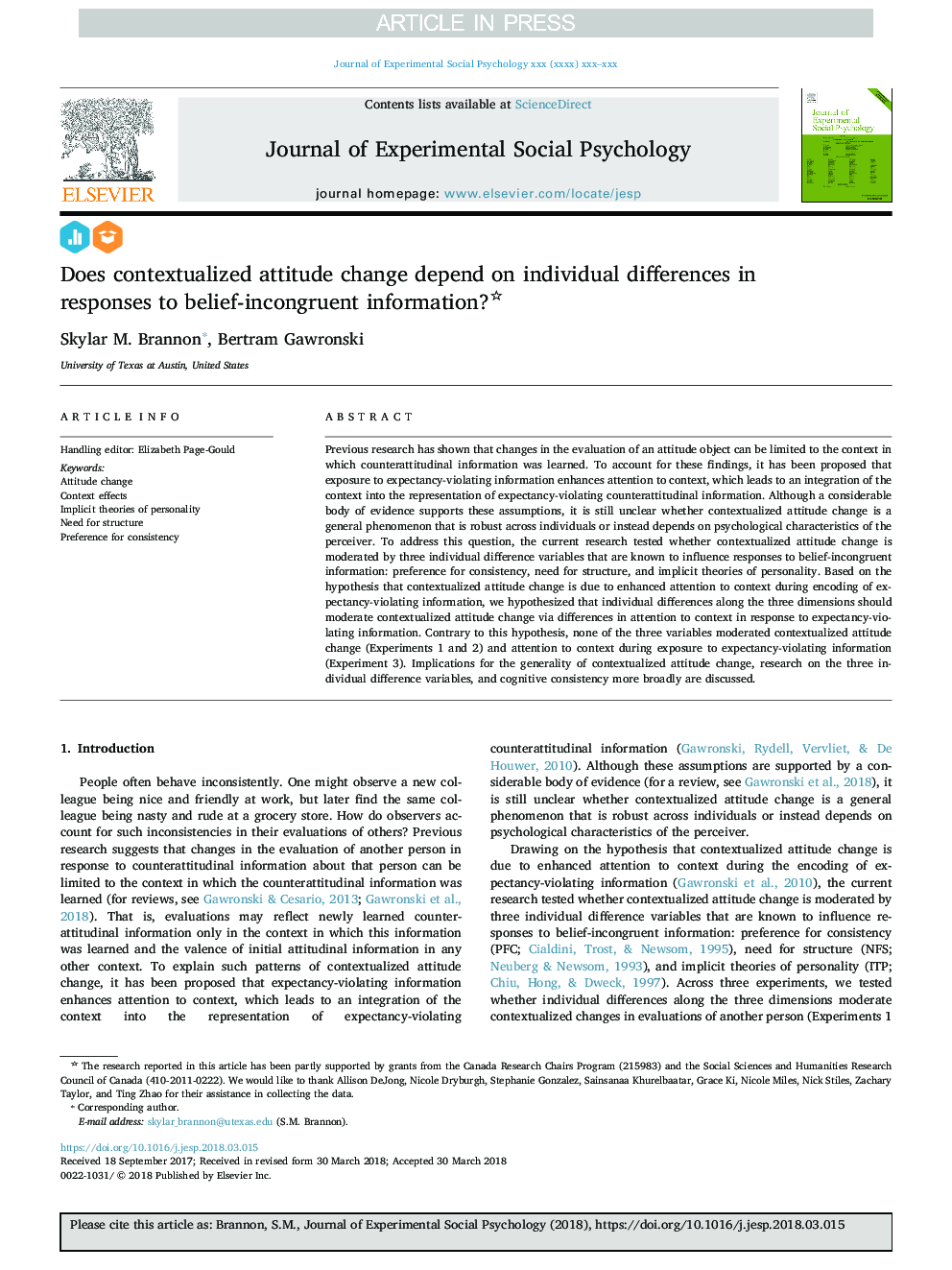| Article ID | Journal | Published Year | Pages | File Type |
|---|---|---|---|---|
| 7323985 | Journal of Experimental Social Psychology | 2018 | 14 Pages |
Abstract
Previous research has shown that changes in the evaluation of an attitude object can be limited to the context in which counterattitudinal information was learned. To account for these findings, it has been proposed that exposure to expectancy-violating information enhances attention to context, which leads to an integration of the context into the representation of expectancy-violating counterattitudinal information. Although a considerable body of evidence supports these assumptions, it is still unclear whether contextualized attitude change is a general phenomenon that is robust across individuals or instead depends on psychological characteristics of the perceiver. To address this question, the current research tested whether contextualized attitude change is moderated by three individual difference variables that are known to influence responses to belief-incongruent information: preference for consistency, need for structure, and implicit theories of personality. Based on the hypothesis that contextualized attitude change is due to enhanced attention to context during encoding of expectancy-violating information, we hypothesized that individual differences along the three dimensions should moderate contextualized attitude change via differences in attention to context in response to expectancy-violating information. Contrary to this hypothesis, none of the three variables moderated contextualized attitude change (Experiments 1 and 2) and attention to context during exposure to expectancy-violating information (Experiment 3). Implications for the generality of contextualized attitude change, research on the three individual difference variables, and cognitive consistency more broadly are discussed.
Related Topics
Life Sciences
Neuroscience
Behavioral Neuroscience
Authors
Skylar M. Brannon, Bertram Gawronski,
